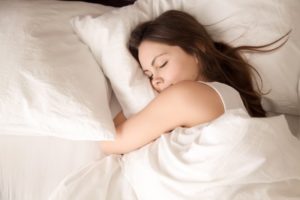
Sleep apnea is a common sleep disorder in which an individual’s breathing stops and starts repeatedly during sleep. The symptoms include daytime sleepiness, loud snoring, and restless sleep. This pause in breathing can be caused because of blocked airway or signaling problems in the brain. If the latter is the cause of sleep apnea, it is termed as central sleep apnea, i.e. CSA.
Once the airways get open or the signal is received, the person may snort, take a breath, or gasp for breath and may wake from sleep with a sensation of gasping or choking, says the dentist in Port Charlotte. If it is left untreated, it can lead to further complications such as heart disease and depression. Also, it affects the sleep and leaves a person drowsy and irritated which can increase the risk of accidents and hazards while working or driving. Lack of sleep can affect cognitive skills in the long run.
Some Facts About Sleep Apnea
- It is estimated that around 1 in 5 adults have mild symptoms of OSA and 1 in 15 adults have moderate to severe symptoms.
- Approximately 18 million Americans are suffering from this condition but sadly only 20% have been diagnosed and treated.
- In women, the risk of OSA increases during menopause and post-menopause phase.
- Patients of sleep apnea are at the risk of hypertension.
- It is more common in people above the age of 50 but it can happen to anyone, even to children says the dentist in 33952.
How is Sleep Apnea Treated?
It is very important to treat sleep apnea. If left untreated, you increase your chances of encountering life-threatening complications like motor vehicle accidents, difficulty in concentrating, depression, heart attack, and stroke. There are different treatments for sleep apnea and the dentist near you will choose the right treatment depending on the level of apnea and the underlying cause. The ultimate goal of the treatment is to normalize your breathing during sleep. Normalizing the breathing will affect apnea in the following ways:
- It will reduce your daytime fatigue and drowsiness.
- It combats unwanted mental changes that happen from apnea or lack of sleep.
- It prevents cardiovascular changes caused by excessive strain or improper breathing.
Some Lifestyle Changes Can Also Improve Sleep Apnea:
The lifestyle changes are important for normalizing breathing and they are crucial during the treatment. These changes include:
- Sleeping on your side
- Weight loss
- Quitting smoking
- Quitting alcohol consumption
While any of these changes can’t happen overnight, it is recommended to try practicing them over the period of time for positive results.
Other Treatment Options for Sleep Apnea
- CPAP Therapy
For the treatment of sleep apnea in Port Charlotte, the CPAP machine is one of the most commonly used techniques. It helps in keeping the airway open by gently providing a constant stream of positive air pressure via a mask. However, some people may face issues with CPAP and they may stop the treatment before achieving any significant benefits.
There is nothing to worry about as you can make adjustments and make the equipment more comfortable by adding moisture to the air as it flows through the mask and can relieve nasal symptoms.
- Surgery
There are different types of surgical procedures for OSA which can widen the airway. The surgery can be used for stiffening or shrinking the obstructing tissue or removing the excess tissue, or enlarged tonsils. The procedure may be carried in a doctor’s office or hospital depending on the extent of surgery.
- Mandibular Repositioning Device
It is a custom-made oral appliance which is suitable for individuals with mild or moderate OSA. The dental appliance helps in holding the jaw in the forward position during sleep for expanding the space behind the tongue. This keeps the upper airway open and prevents apnea as well as snoring. However, there may be some side effects of an MRD which includes jaw or tooth pain, and aggravation of TMD.
It is important to consult nearby area dentists near Punta Gorda, Murdock for treating sleep apnea as it can have severe consequences. People suffering from excessive daytime sleepiness or other symptoms of sleep apnea should ask a doctor about the symptoms.
